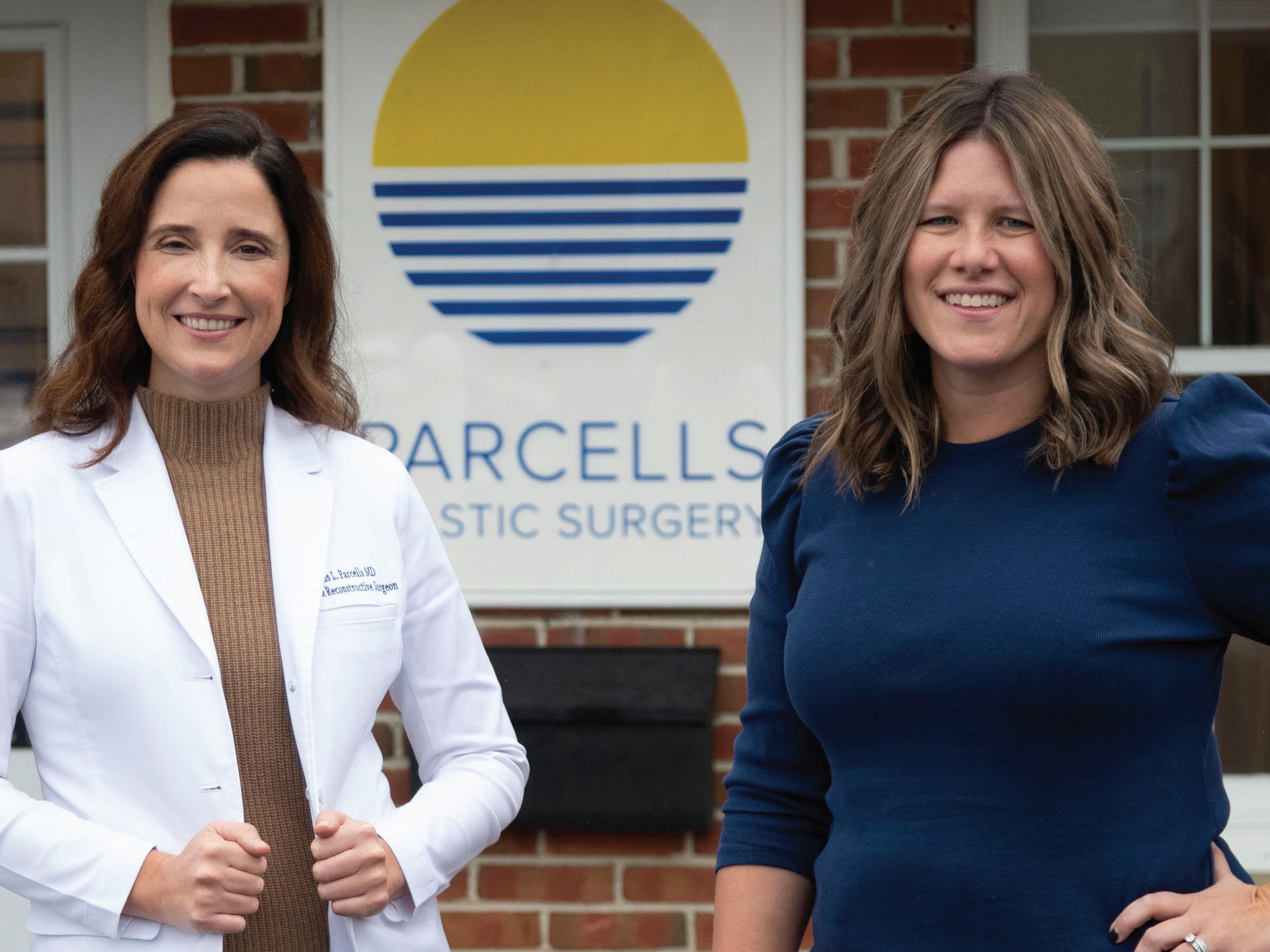
4 minute read
Breast Reduction Surgery Is a ‘Game Changer’
BREAST REDUCTION SURGERY IS
A mother of two lives pain-free thanks to the procedure performed by Dr. Alexis Parcells at MMC.
Christine Tafrow wants to talk about her breasts. In fact, she thinks that “more women should be talking about our bodies,” says Tafrow, 38, of Somerset County. “I am trying to teach my daughter that.” Specifically, she wants to talk about the breast reduction surgery she had at Monmouth Medical Center in September 2021. By talking about it openly and honestly, she hopes she can inspire other women who may need this surgery to consider it sooner rather than later.
Tafrow, who works in business development for Amazon, says she had been thinking about a reduction procedure for many years. She went from a relatively small chest to a large one “overnight in high school,” she says, like other women in her family did before her. It interfered with her ability to play sports, and she was unable to find clothes that fit well or were comfortable. She had to hide the fact that she wore two sports bras in gym class.
“It was embarrassing, and it hurt,” she says. Her doctor noted it in her medical record, because “I knew I didn’t want these big breasts defining who I was.”
She also knew she wanted to be able to breastfeed her children, so she waited on surgery until the two kids she had with her husband, Chris, were older. (They are now ages 8 and 6.) She planned on having surgery in 2020, but the COVID-19 pandemic got in the way of elective surgeries like this. She did begin looking for surgeons, however, and decided on Alexis Parcells, M.D., a plastic surgeon with MMC. “I wanted a woman and a mom, someone that understood what I went through all my life,” Tafrow says.
“Christine came to see me with a long-standing history of neck, shoulder and back pain,” Dr. Parcells says. “She had tried dieting, exercise, physical therapy and chiropractic care with no improvement of her symptoms. We attributed these complaints not only to her breast size, but the position of her breasts on her chest wall. This was causing her to hunch over and resulted in poor posture. Her bra had created grooves in her shoulders. We discussed continuing conservative treatment, and after a few months, we ultimately decided together that she would benefit from a breast reduction.”
GIVEN A NEW LIFE
During the procedure, the surgeon removes breast volume and lifts the breasts to sit higher on the chest wall. “Because this is a skin and gland surgery, it is not overly painful, and most patients are comfortable taking just Tylenol afterward,” Dr. Parcells explains. “I also inject long-acting numbing medicine during the procedure so patients wake up in little to no pain.”
The procedure usually takes around three hours to perform, and it is an outpatient surgery so patients go home the same day.
Tafrow says she felt “really good” after the surgery. She slept on a recliner the first few nights to keep pressure off her chest, avoided lifting heavy objects for a while and, hardest of all, had to “be diligent about not letting my kids hug me and climb on me.” She was back to work at her home computer in less than a week. She returned to the gym for physical activity in November.
Her bra size went from 36G–“that’s like 4D,” she says—to 36C. “I have eliminated half my clothes because they were so big and baggy. I can’t believe how much I hid myself under clothes.” She feels better when sitting at her computer or in the bleachers for her kids’ sporting events. Her back and neck pains are gone, and there are no marks from her bras or rashes under her breasts. And “specialty bras cost $100 a pop, and now I get six for $100,” she says happily.
“Many people don’t realize that heavy breasts can be debilitating,” Dr. Parcells says.
“Surgery can be a game changer. I’ve had a number of women come in crying because they could shop at a retail store and finally fit into a buttondown shirt or jacket that they love. Their pain is gone.”
Dr. Parcells says that, in order for insurance to cover these procedures, women have to meet certain requirements. “They must complete a trial of conservative treatments including physical therapy or chiropractic care for a few months first. Additionally, insurance companies will also require that a certain amount of tissue be removed for the procedure to be considered therapeutic. Each policy differs on its requirements slightly,” she says.
“I so enjoy performing this procedure because it gives my patients relief and satisfaction,” she adds. “I commonly perform the procedure in women 18 to 65 years old. It’s never too early, and it’s never too late. Satisfaction is incredibly high, and most of my patients commonly say they feel immediate relief. Most agree they wish they hadn’t waited so long— sometimes 20 to 30 years—to have it performed.”








